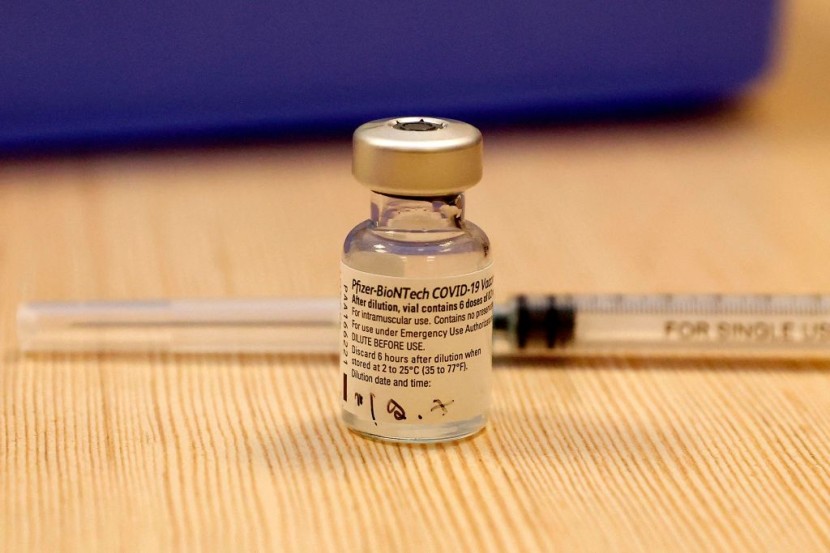
BioNTech SE said it will use some of the profits from the COVID-19 vaccine it sells with Pfizer Inc., to invest in malaria and tuberculosis vaccines research in Africa, as part of the German firm's aim to build a big manufacturing base for breakthrough medicines on the continent.
Vaccine technology through mRNA was an experimental, unproven outlier on the boundaries of mainstream research eighteen months ago. The amazing success of two mRNA COVID-19 vaccines in 2020 has paved the way for a slew of future developments.
Covid-19 mRNA vaccine success to expand through malaria jab
BioNTech is presently working on many additional mRNA vaccines to expand on the success of Covid-19. Along with mRNA vaccines for HIV and Tuberculosis, the firm has also revealed the development of a malaria vaccine, New Atlas reported.
The large-scale endeavor is part of a larger effort to combat malaria. BioNTech is collaborating with the World Health Organization (WHO) and Africa's Centers for Disease Control and Prevention (CDC) to establish mRNA manufacturing facilities in Africa, in addition to developing and testing an mRNA malaria vaccine.
The objective is to expand vaccination availability in low- and middle-income nations so that, if a vaccine candidate proves effective in trials, it may be quickly manufactured and given to those who need it most.
According to WHO, 229 million cases of malaria were reported worldwide in 2019, with around 409,000 fatalities. Children under the age of five accounted for 67 percent of fatalities in 2019, with Africa accounting for 94 percent of cases and deaths, as per Sky News.
"We are already working on HIV and tuberculosis, and malaria is the third big indication (disease) with a high unmet medical need," said Ugur Sahin, Chief executive of Biotech.
However, Sahin admitted that the initiative is still in its early stages and that there is no assurance of success. Because of ideas acquired from creating an mRNA vaccine against Covid-19, he noted, the company feels now is the right moment to solve this problem.
According to Reuters, malaria is a complicated disease produced by a parasite that escapes immune system identification, according to Sahin, who said that the objective is to develop a vaccine that makes the parasite visible and attackable from the start.
Read Also: Fatal, Untreatable "Superbug" Spreads from Patients in Two Cities; CDC Warns Global Health Threat
BioNTech aims to evaluate the tuberculosis vaccine in 2022
Messenger RNA vaccines cause the human body to produce a pathogen-specific protein, prompting an immune response. They're also easier to modify than standard vaccinations and take less time to create.
Mosquirix, the world's first and only approved malaria vaccine, was produced over several years of clinical trials in many African nations by GlaxoSmithKline (GSK.L), although it is only around 30% effective. Adrian Hill, one of the key scientists behind the Oxford-AstraZeneca Covid-19 vaccine, is leading a team of researchers at Oxford's Jenner Institute who are working on a potential new malaria vaccine that has shown promise in a year-long study.
BioNTech said it will evaluate several vaccine candidates targeting the circumsporozoite protein (CSP), as well as novel antigens found in pre-clinical research, and choose the most promising for a clinical trial that will begin by the end of 2022. The firm is also looking for suitable mRNA vaccine production facilities in Africa, either with partners or on its own, with help from the Bill and Melinda Gates Foundation, the European Commission, and others.
BioNTech Chief Operating Officer Sierk Poetting stated that the firm will fund the vaccine's research and initial manufacturing, then turn to its partners for help with large-scale trials and infrastructure, such as fill and finish facilities and local training.
The company also aims to begin a clinical trial in 2022 to evaluate a tuberculosis vaccine candidate and is collaborating with partners to develop vaccines for nine other infectious illnesses, including cancer.
Related Article: CDC Launches Investigation Following Teen's Death After Receiving Second Dose of Pfizer COVID-19 Vaccine
@YouTube








